
The fourth annual SweepSouth Report on Pay and Working Conditions for Domestic Workers Across Africa gives us a descriptive overview of the current living conditions of the women and men who take care of our homes and office spaces by providing professional cleaning services. This year, SweepSouth took it a step further and expanded its reach across Africa, adding additional African countries to the report to create an even bigger picture of the domestic worker industry. With collective data from Kenya, Nigeria and South Africa, a vast comparison across countries is given to describe the lives of domestic workers and their current working conditions.
Drawn from 7000 responses, the majority of South African domestic workers partaking in the survey were females between the age of 25 and 44 (79%). We’ve also seen a slight increase in the number of male respondents in the same age bracket, compared to our 2020 SweepSouth Domestic Worker Annual Report. On average a domestic worker in South Africa can be described as a single caregiver who sacrifices variable-cost items like food to stretch their earnings. If female, she also battles to take care of her mental health, while providing for her family. This year, SweepSouth collaborated with a mental health specialist to delve deeper into this topic.
When it comes to Kenya and Nigeria the respondents were younger but showcased similar living conditions to those in South Africa. The household size is the same, with most domestic workers reporting that they are the main breadwinner in their household. Both Kenya and South Africa show a deficit when comparing earnings to basic costs. This means that workers in these regions will be forced to take on debt or reduce spending costs on vital items to make ends meet every month. Nigerian respondents could cover their basic costs, driven by the significantly lower expenditure on food and rent compared to South Africa.
Through the 2021 report, we view the current living conditions and situation of domestic workers after a year of COVID-19 while demonstrating the urgency of change and intervention needed to improve the industry for the better. The impact of COVID-19 on the livelihoods of domestic workers has been significant, with Kenya and Nigeria showing that about 2 in 5 domestic workers lost their job due to the pandemic vs 1 in 5 in South Africa. According to our latest survey, almost half of the households in South Africa and Nigeria have additional sources of income.
Another fascinating response captured from the survey was the vaccine hesitancy and concern across all the countries. South Africa showed the greatest hesitancy despite many experiencing the loss of someone they know to COVID-19 and comprehensive knowledge of COVID-19 shown in our 2020 annual survey. Non-South African respondents were 12 percentage points less likely to want to be vaccinated.
For more fascinating insight and information into the living conditions of domestic workers, and questions about financial security, saving habits, living costs and earnings across South Africa, Kenya and Nigeria we encourage you to delve into this year’s SweepSouth Annual Report of Domestic Workers.
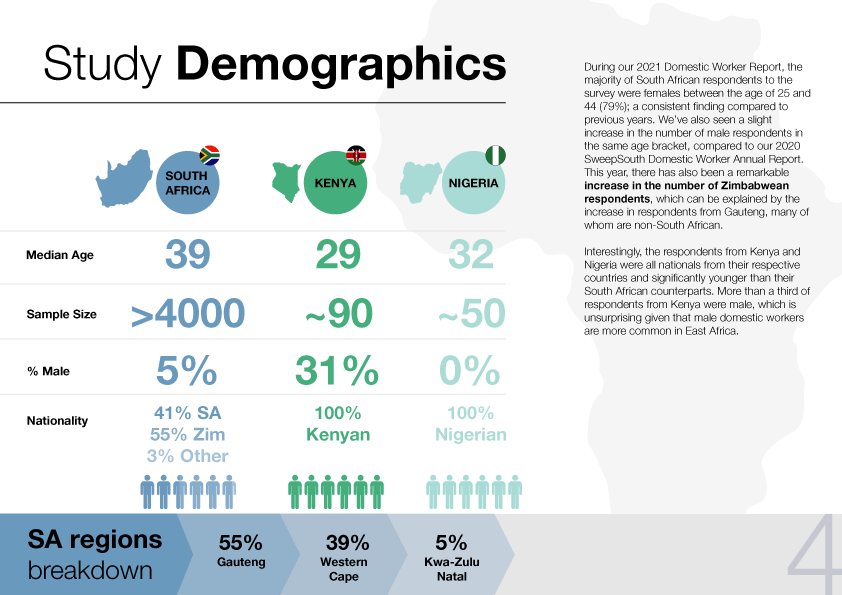
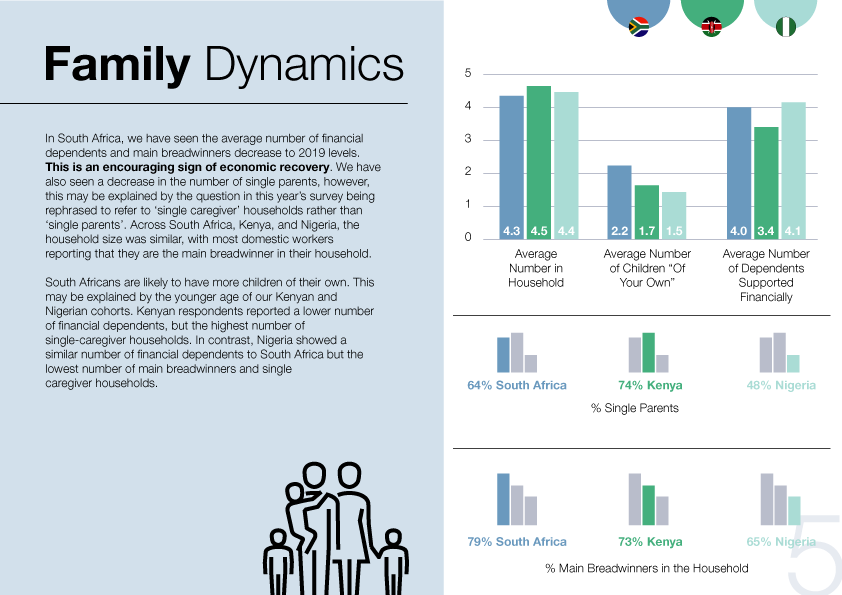
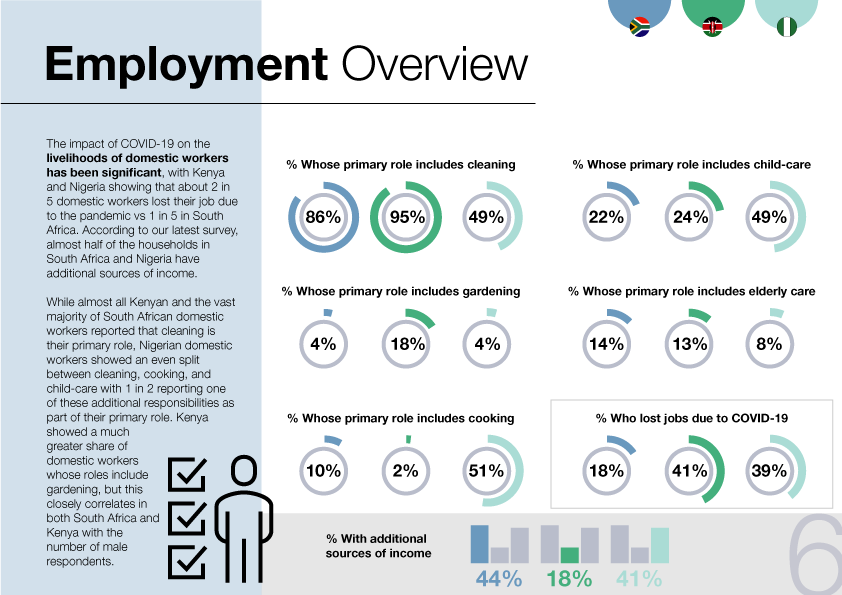
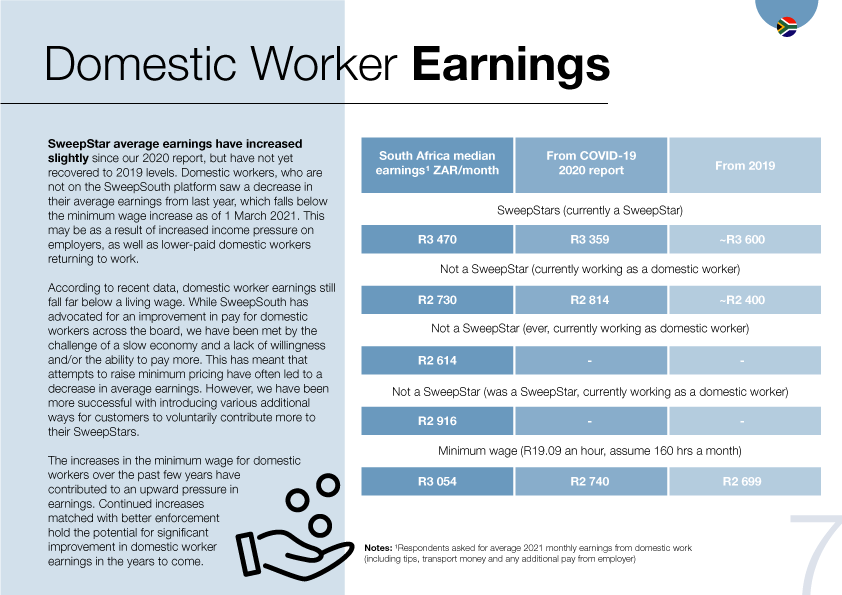
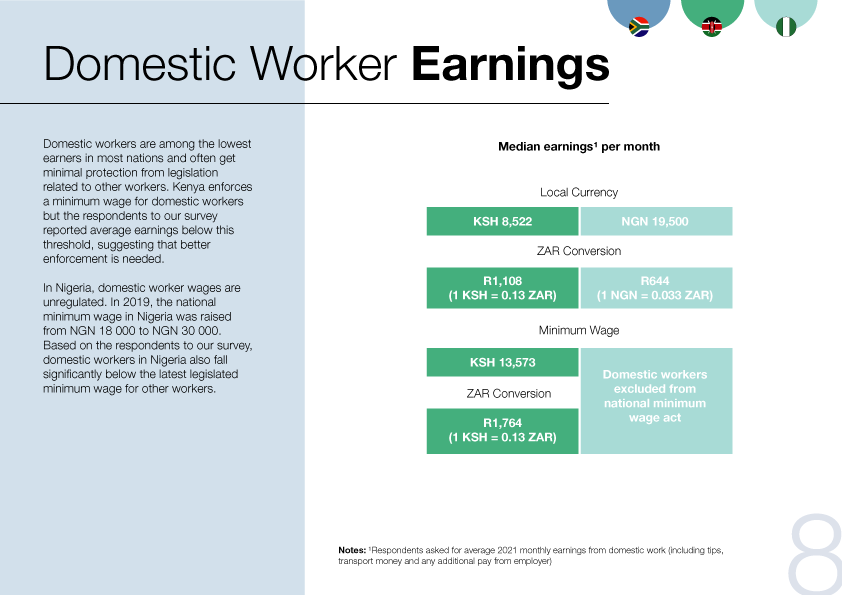
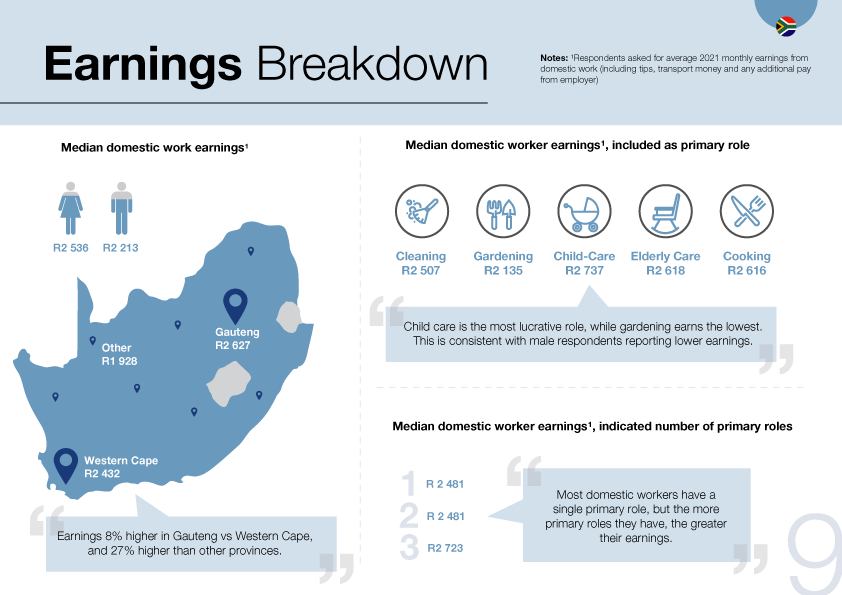
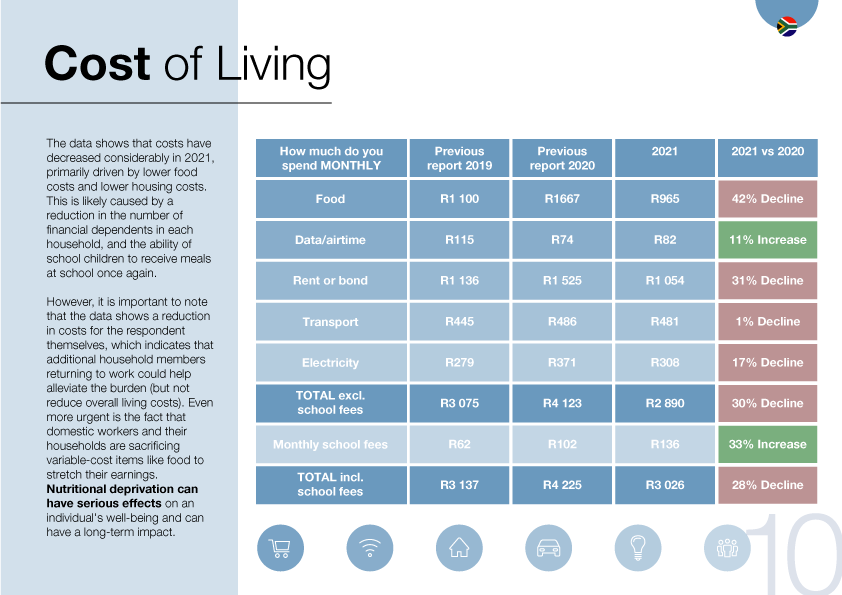
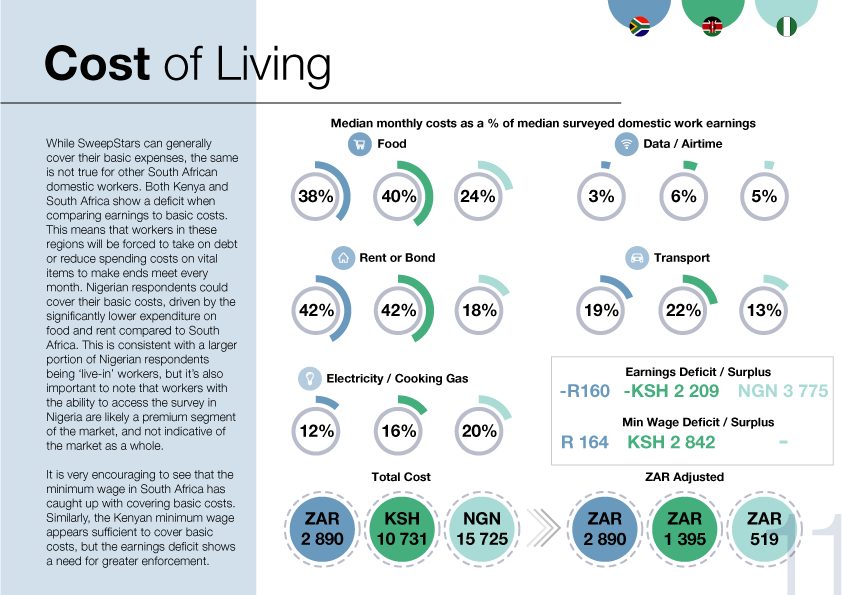
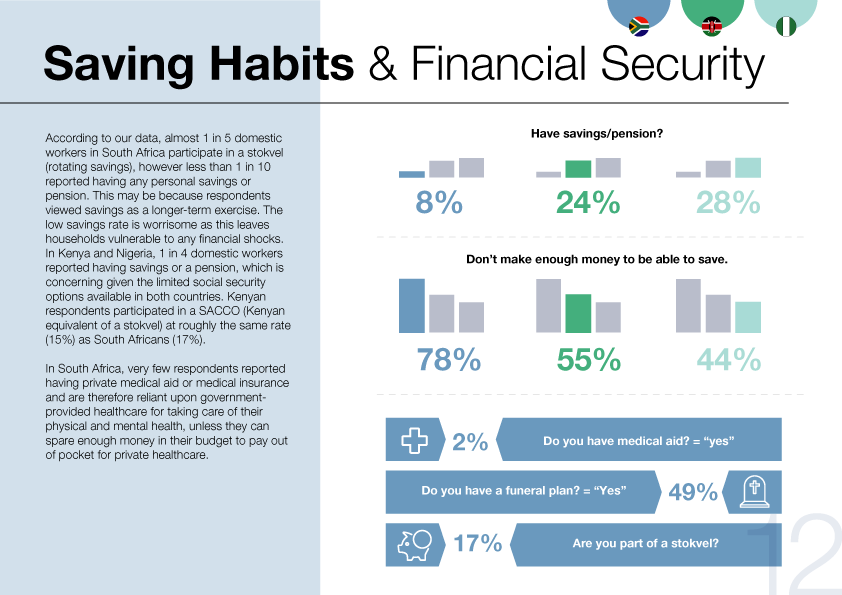
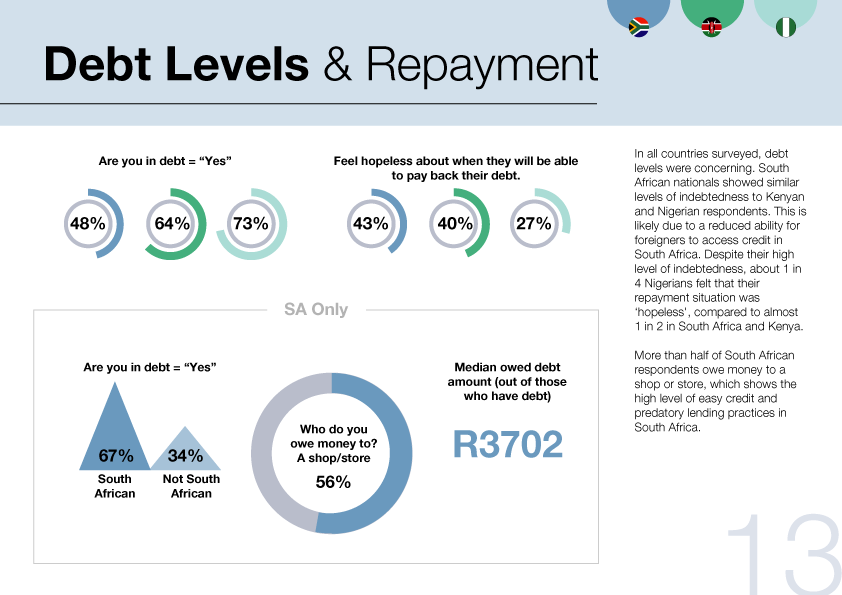
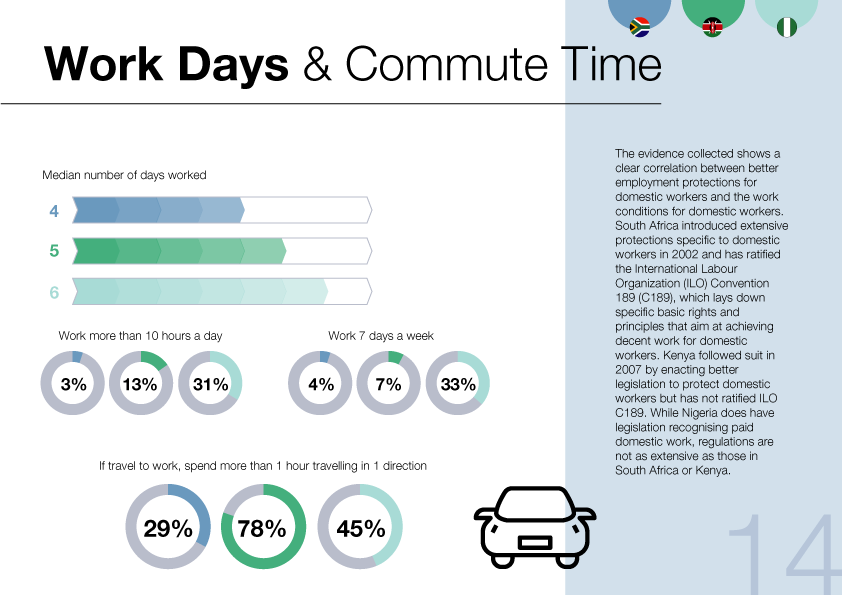
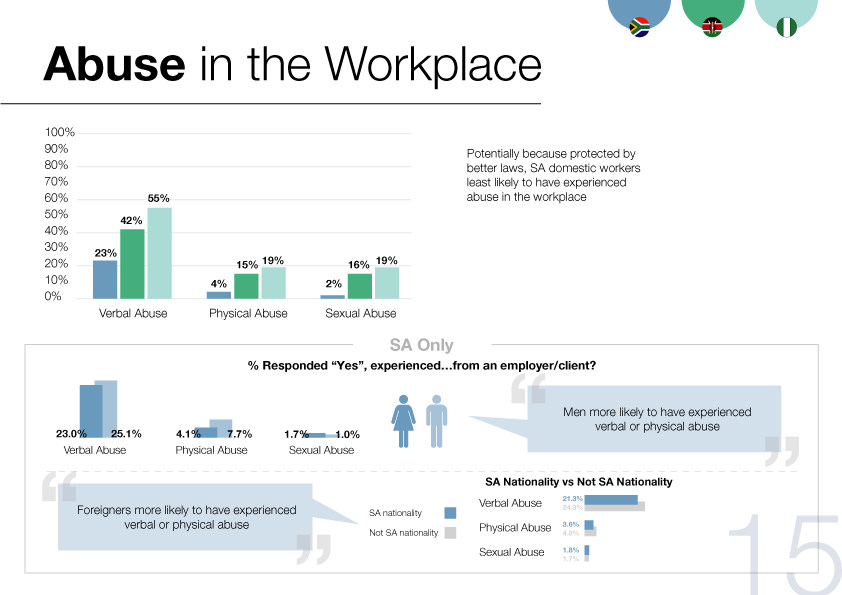
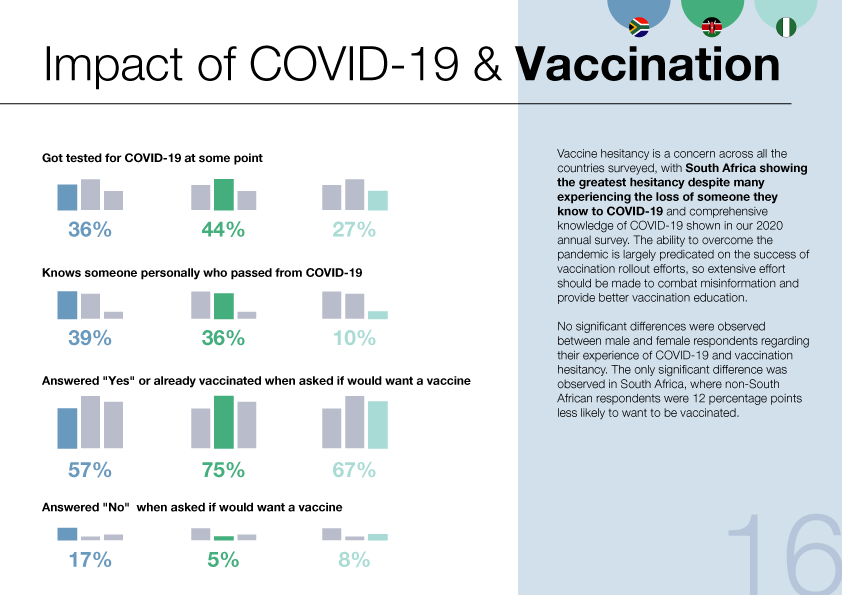
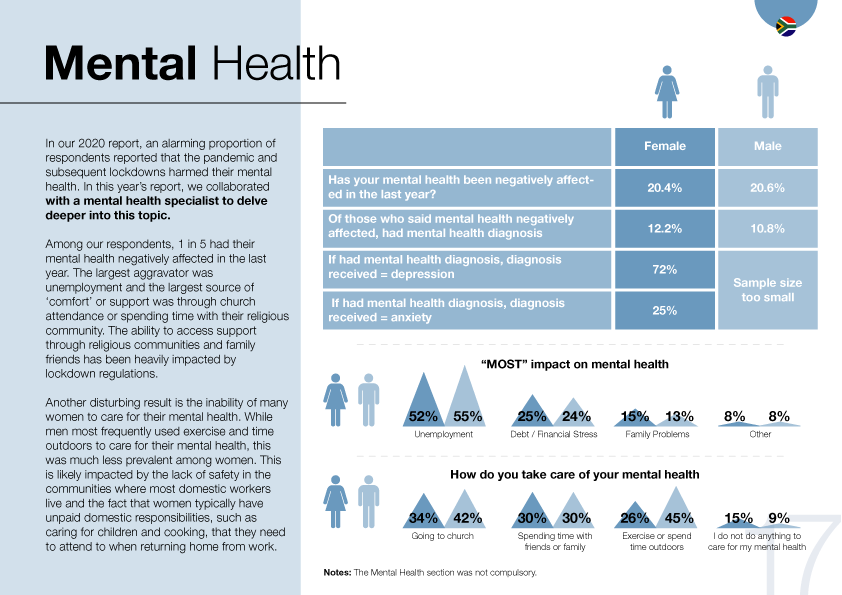
Book a reliable & trusted SweepStar today and help make a difference in their lives:










11 thoughts on “Pay & Working Conditions For Domestic Workers Across Africa”
Comments are closed.